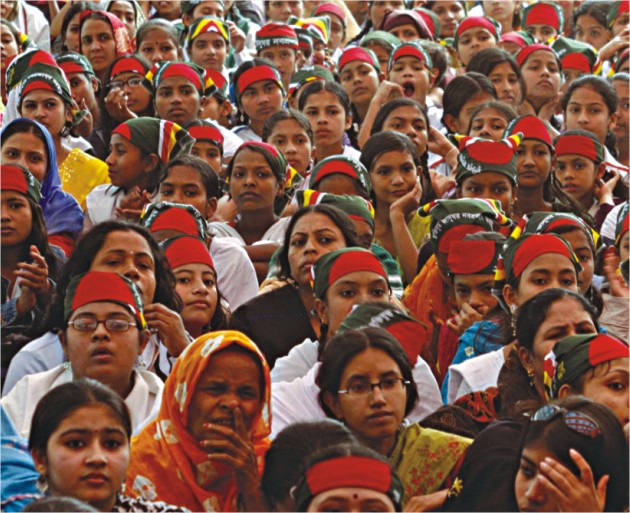
Inside
|
A Tale of Neglect
Despite the strong commitment of the Awami League (AL) government with respect to the war crimes trial, little progress has been made. Lack of logistics and coordination have caused delays in the setting up of the tribunal, while the investigation and prosecution teams leave much to be desired. Two years into the government's tenure, the nation's aspirations of seeing the war criminals being brought to book are yet to be fulfilled with the only activity surrounding the matter is the grand speeches and irrelevant comments of political leaders on the issue. According to the International Crimes (Tribunals) Act 1973, it is the government's job to set up a tribunal, which includes the appointment of investigation and prosecution teams and providing them with highly experienced experts, adequate staff and logistical support. This would ensure an independent tribunal and in turn, justice.
The case is not one of Government v. War Criminals but State v. War Criminals, and the government's only, though crucial role, is to set up the tribunal, meeting international standards. Unfortunately, however, the attitude of the government is little short of careless. The role of the concerned ministries has been frustrating, the appointed investigation and prosecution teams are wanting and the delays are making the whole process uncertain. The demand for the trial of war criminals and justice for the genocide committed in 1971 was initiated through the movement led by Shaheed Janani Jahanara Imam who organised the historical platform, Ekattorer Ghatok Dalal Nirmul Committee, which involved pro-liberation forces, sector commanders of the liberation war, Projonmo '71, united cultural forums, artists, writers, teachers, intellectuals, media activists and other progressive, democratic forces of the country. The movement had huge public support and built up a national aspiration for the setting up of a tribunal to try the war criminals. In 1992, Jahanara Imam formed a Gono Todonto Commission chaired by poet Sufia Kamal. The Commission organised an investigation team which went to cities and villages of identified war criminals and where war crimes were committed in 1971 and found 16 leading Razakar and Al Badr leaders who were actively involved in genocide and crimes against humanity in collaboration with the Pakistan army. The team found many witnesses and all the evidence was included in their reports which were published at public meetings by Imam and Kamal. Two investigation reports were published before the death of Jahanara Imam. Since then, too, many other organisations and individuals have worked on the issue of atrocities committed in 1971.
In terms of legal experts, many had actively participated in the liberation war, some of whom were closely associated to Sheikh Mujibur Rahman and had worked with the Tajuddin government. They know about the 195 Pakistan army personnel who were identified war criminals and know under what conditions they were handed over as they had played a key role in the negotiations. These now eminent lawyers could have been put at the helm of the legal process of trying the war criminals. But neither the experienced investigators, nor the legal experts have been included in the process of setting up the tribunal. Indeed, years of research conducted on Nuremburg and other war crimes trials and frequent recommendations made by the leading organisations have been ignored by the government. In July, the Nirmul Committee wrote to the government demanding, among other things, more members in the investigation and prosecution teams, tribunal spokespeople and coordinators, security on the tribunal premises and adequate funding. But these recommendations are yet to be considered by the government. Eighteen years since the movement led by Shaheed Janani Jahanara Imam, during which time there have been underhanded political games, unfortunate alliances and the ultimate ascension of identified war criminals to power, the people have again risen, with the Nirmul Committee and Sector Commander's Forum assuming leadership. Two years ago, it gained new momentum when three crore new voters gave their verdict. For, the AL-led coalition came to power with such an overwhelming majority because of their commitment to the trial of war criminals. But it is yet to follow through on its promise as the process of justice remains obscure. People, especially young people, all over the country, are awaiting the trial of the war criminals of 1971. But so far, all they have seen is carelessness and neglect by the authorities and even more delays in the process of justice which has eluded us for so many decades already. Aman-Ud-Dowla is a freelance journalist and editor of Ebarta.com.
|

